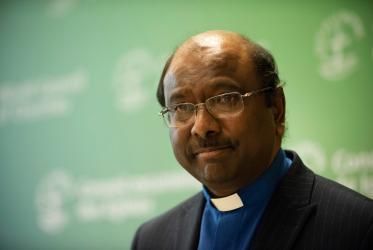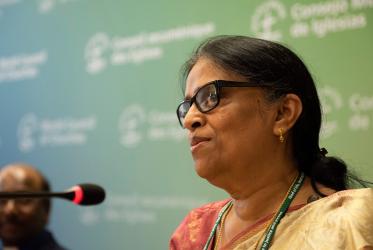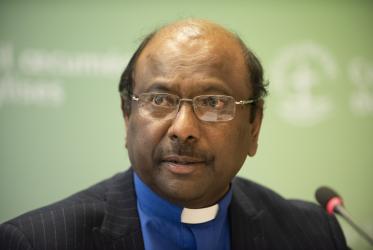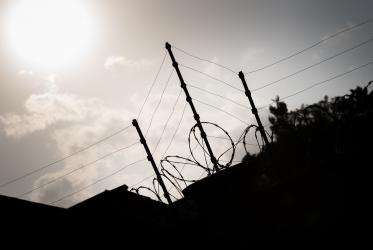by the WCC general secretary Rev. Dr Olav Fykse Tveit
The World Council of Churches welcomes two decisions just taken here in Geneva to protect human lives from lethal and indiscriminate weapons. Both decisions are heartening examples of a world majority of mostly small countries taking leadership for the common good when powerful states have failed to do so. Both address threats that churches have long decried.
On 25 November 2011, a United Nations arms control commission rejected a new law that would have allowed certain countries to keep and use cluster munitions that were banned four years ago by the Oslo Convention.
The next day the Council of Delegates of the International Red Cross and Red Crescent movement adopted a resolution about eliminating nuclear weapons. It calls all states to ensure that nuclear weapons are never used and commits the movement to build understanding of the “catastrophic humanitarian consequences of any use” and the need for concrete actions to eliminate nuclear weapons.
As churches, we believe in the sanctity of life. As members of international civil society, we want to emphasize the importance of societies and nations standing together and establishing common standards when it comes to protecting lives put at risk by indiscriminate weapons.
The cluster munitions decision rejects a separate weaker law for countries such as the United States, China, Russia, India, Pakistan and Israel that would have given them the right to use weapons an international majority has already made illegal by treaty in 2008.
The Red Cross/Red Crescent decision commits a unique worldwide humanitarian movement to an issue that has moved more than 180 countries to pledge never to have nuclear weapons. It identifies questions with deep spiritual implications for all people, including how much suffering human beings are willing to inflict on others or allow to happen.
Both decisions represent specific victories for the international rule of law in the face of long-standing delays and opposition by a few major countries. Saving lives on a large scale requires that all countries live up to the same high standards.
These efforts deserve wide recognition and I am pleased to give my support in work and prayers.




